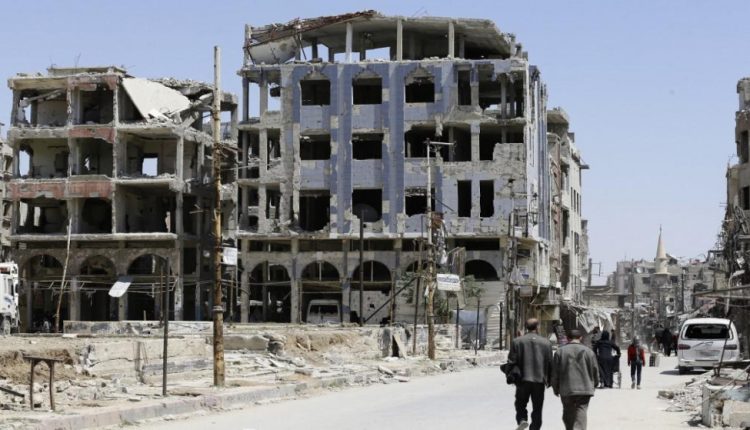Syria’s Chemical Weapons Declaration Remains Incomplete, OPCW Report Says
By Kardo Roj
DAMASCUS, Syria (North Press) – The Organization for the Prohibition of Chemical Weapons (OPCW) reported on Tuesday that discrepancies persist in Syria’s declared chemical weapons program, despite continued engagement with the Syrian government.
The latest report, covering the period from February 24 to March 23, 2025, assessed ongoing efforts to dismantle and verify Syria’s chemical weapons program. More than a decade after Syria’s accession to the Chemical Weapons Convention (CWC) in September 2013, the OPCW’s Technical Secretariat still deems the country’s initial declaration incomplete.
According to the OPCW, “gaps, inconsistencies, and unresolved discrepancies” remain in Syria’s official declaration regarding its chemical weapons stockpiles and production facilities. The report underscores that without full disclosure, international verification efforts cannot confirm the complete dismantlement of Syria’s chemical weapons capabilities.
The Syrian government has cooperated with some aspects of the OPCW’s verification process, including periodic inspections and documentation reviews. However, the organization maintains that several unresolved issues hinder full compliance with the CWC.
The OPCW’s Investigation and Identification Team (IIT) and the Fact-Finding Mission (FFM) continue to examine instances of chemical weapon use in Syria. These teams have previously attributed multiple chemical attacks to the Syrian government and other parties, leading to diplomatic tensions and sanctions against Damascus.
Since the Syrian conflict began in 2011, multiple reports from international organizations and human rights groups have accused the Syrian government and other factions of deploying chemical weapons, particularly in areas of intense conflict. The most infamous incidents include the 2013 Ghouta attack and the 2018 Douma attack, both of which prompted international condemnation and military responses.
The OPCW’s findings reinforce concerns within the international community over Syria’s compliance with chemical weapons regulations. Western nations, particularly the United States and European Union member states, have repeatedly called for increased pressure on Damascus to provide a full and verifiable account of its chemical weapons program.
Conversely, Syrian Assad regime and its allies, including Russia, have often dismissed OPCW reports as biased, arguing that investigations rely on politically motivated sources. Moscow has consistently defended Damascus in international forums, challenging the credibility of Western-backed evidence on chemical attacks.
The OPCW report recommends continued diplomatic and technical engagement with Syria to resolve outstanding discrepancies. However, without full cooperation from the Syrian government, experts suggest that the issue will remain unresolved, further complicating efforts to achieve lasting accountability and stability in the region.
The ongoing chemical weapons controversy remains a significant point of contention in Syria’s broader conflict and diplomatic relations. The OPCW’s findings are expected to be discussed in upcoming meetings of the United Nations Security Council, where calls for renewed investigative and punitive measures may arise.
As Syria remains a focal point of geopolitical tensions, the future of its disarmament efforts—and the broader implications for international security—hang in uncertainty. With the OPCW maintaining its stance on unresolved chemical weapons issues, the path forward remains fraught with political and technical challenges.

